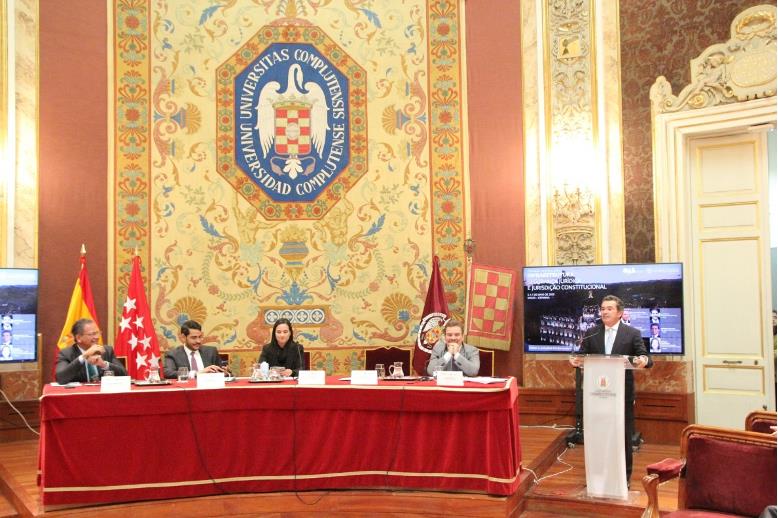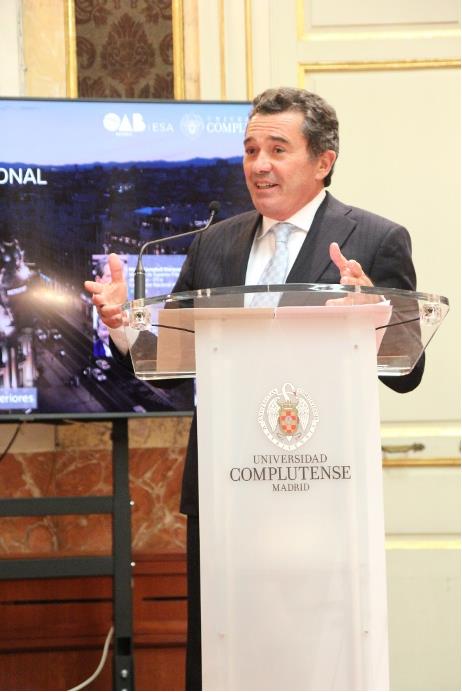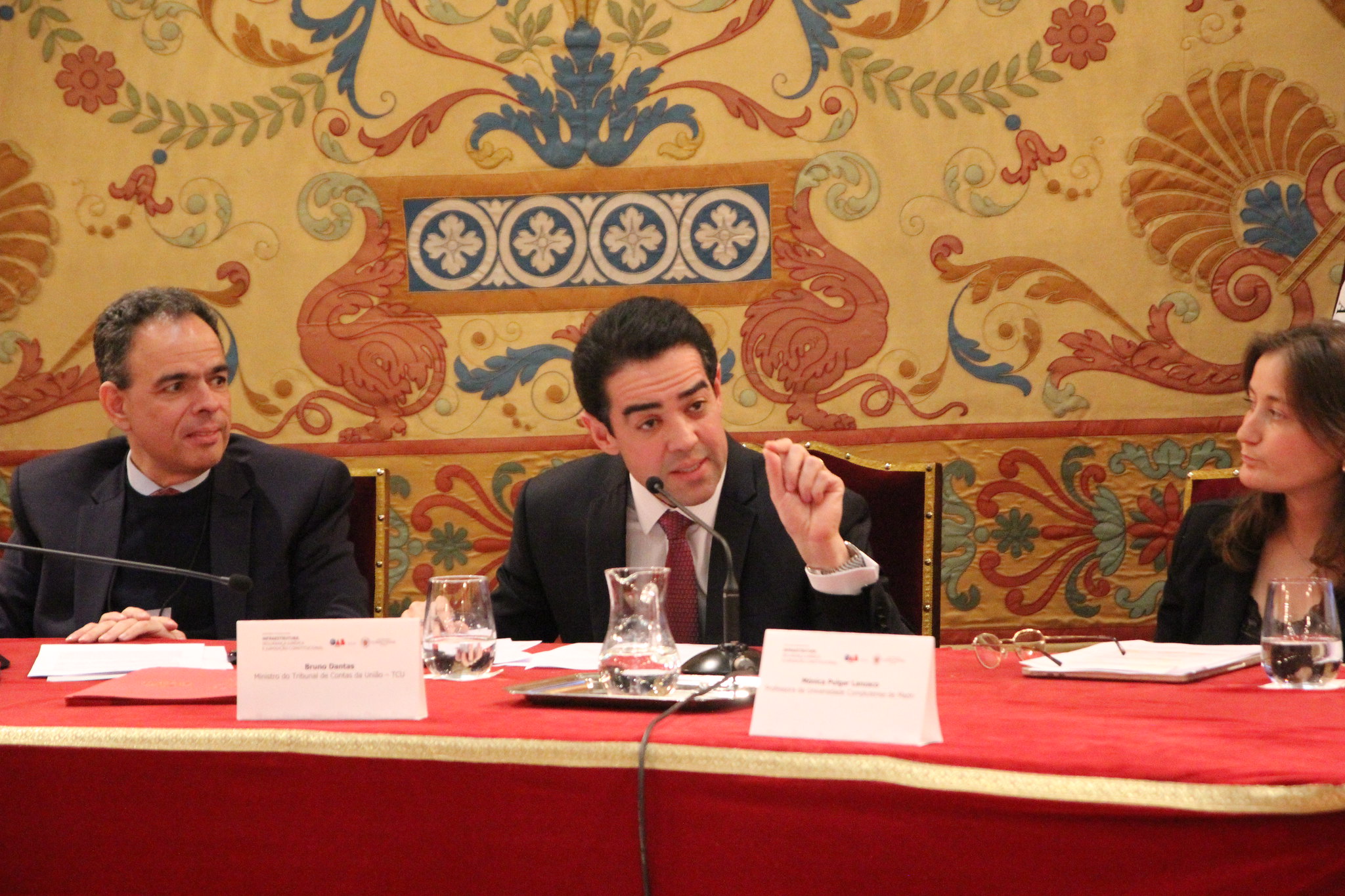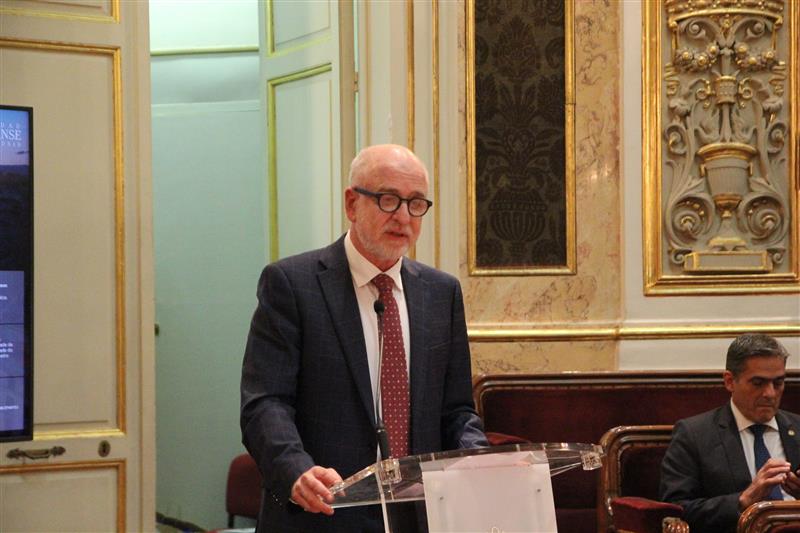Brazilian Federal Court of Accounts Shares Experience with Consensual Solutions at International Seminar
Event organized by the Brazilian Bar Association in Spain brought together justices, jurists, and authorities to discuss infrastructure, legal certainty, and governance in the context of globalization
By Secom / Serint

The President of the Brazilian Federal Court of Accounts (TCU), Minister Vital do Rêgo, was one of the keynote speakers at the international seminar “Infrastructure, Legal Certainty, and Constitutional Jurisdiction”, held at Complutense University of Madrid, Spain, from May 5 to 7. The event was organized by the Brazilian Bar Association (OAB) and also featured the participation of TCU Ministers Benjamin Zymler and Bruno Dantas.
The seminar brought together experts and high-level officials to discuss how infrastructure, legal certainty, and constitutional jurisdiction shape commercial, corporate, and governmental relations in an increasingly globalized world. The panels addressed the influence of these pillars on commercial, business and government relations, focusing on the challenges and opportunities for the public and private sectors in the face of global transformations.
Minister Vital do Rêgo joined the panel on “Consensual Solutions in Higher Courts” alongside Mauro Campbell Marques, Minister of the Superior Court of Justice (STJ) and National Inspector of Justice; Jorge Messias, Attorney General; and Wellington Silva, Chief Legal Officer at Petrobras. The session was moderated by Íngrid Zanella, President of the Pernambuco Section of the OAB.
The discussion focused on the importance of cooperation between oversight bodies and judicial institutions in delivering faster, more effective, and less litigious solutions in both the public and private spheres.

In his remarks, Minister Vital highlighted the Brazilian Court of Accounts’ experience with alternative dispute resolution. He spotlighted the work of the Department of Government Audit for Mutual Agreement and Conflict Prevention (SecexConsenso/TCU). “We launched SecexConsenso in 2022. By 2023, we were already operational, and Brazil’s economic and governance sectors welcomed the initiative with open arms,” he noted.
The Minister cited successful agreements in the road infrastructure sector as prime examples, including improvements to highway concessions such as the BR-101 in Espírito Santo and Rio de Janeiro, and the BR-163 in Mato Grosso do Sul. According to him, the TCU’s work enabled R$ 32 billion in new investments and prevented billion-real lawsuits, such as in the case of the ViaBahia concession, whose contract termination was carried out consensually.
“Our experience speaks for itself. What we aim for is to stay on this path with all of you: building a Brazil that is less bureaucratic and more efficient, a State that doesn’t impose itself, but builds together. A State where dialogue becomes the norm and where we can overcome extremism in all areas,” he concluded.

Ministers Benjamin Zymler and Bruno Dantas also spoke on the panel “Legal Certainty and Infrastructure”, which included Andrei Augusto Passos Rodrigues, Director-General of the Federal Police; Inês Maria dos Santos Coimbra, Attorney General for the State of São Paulo; and Gustavo Binenbojm, Full Professor at the Rio de Janeiro State University (UERJ) School of Law. The session was moderated by the Director of FGV Conhecimento.
